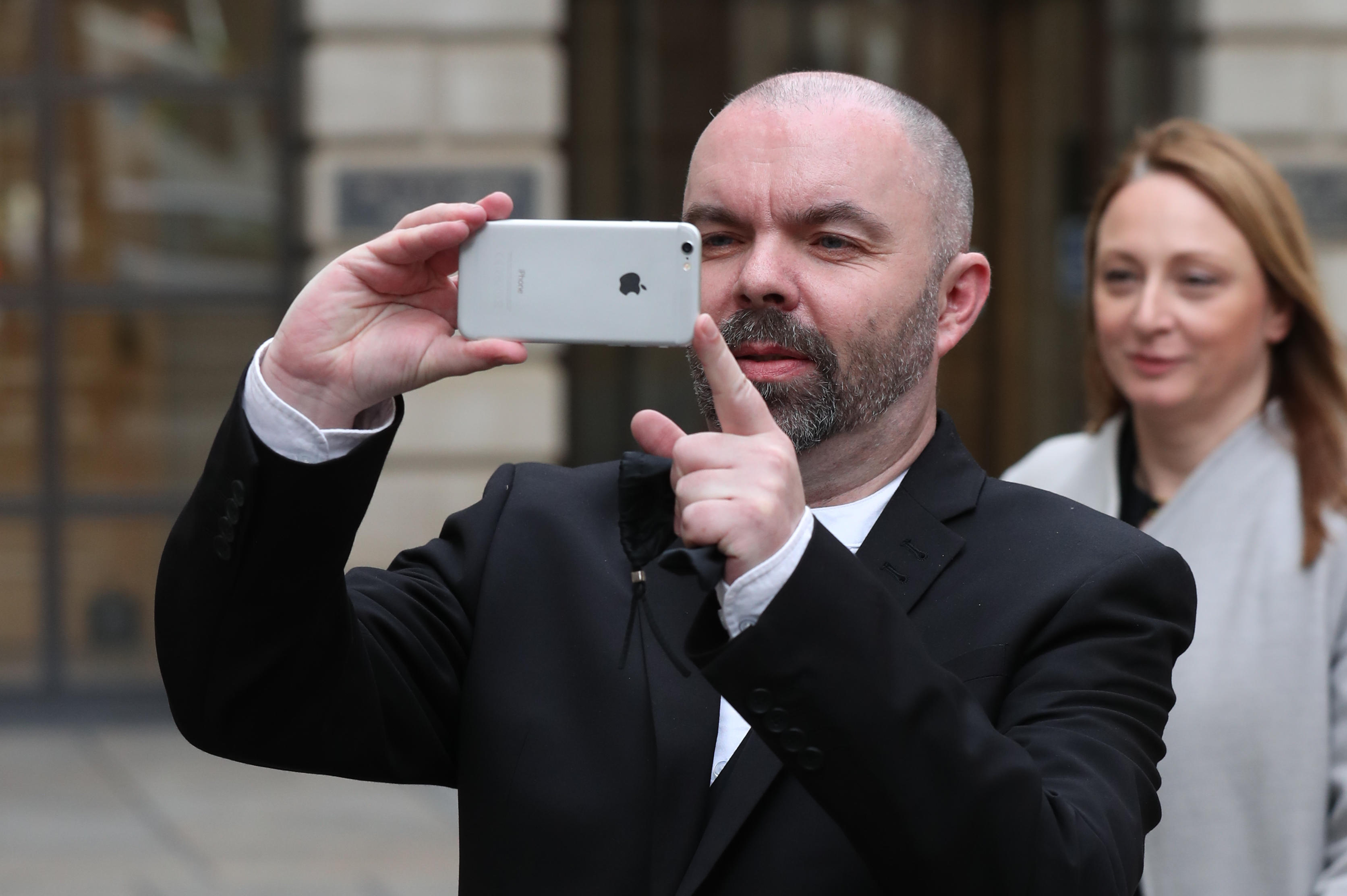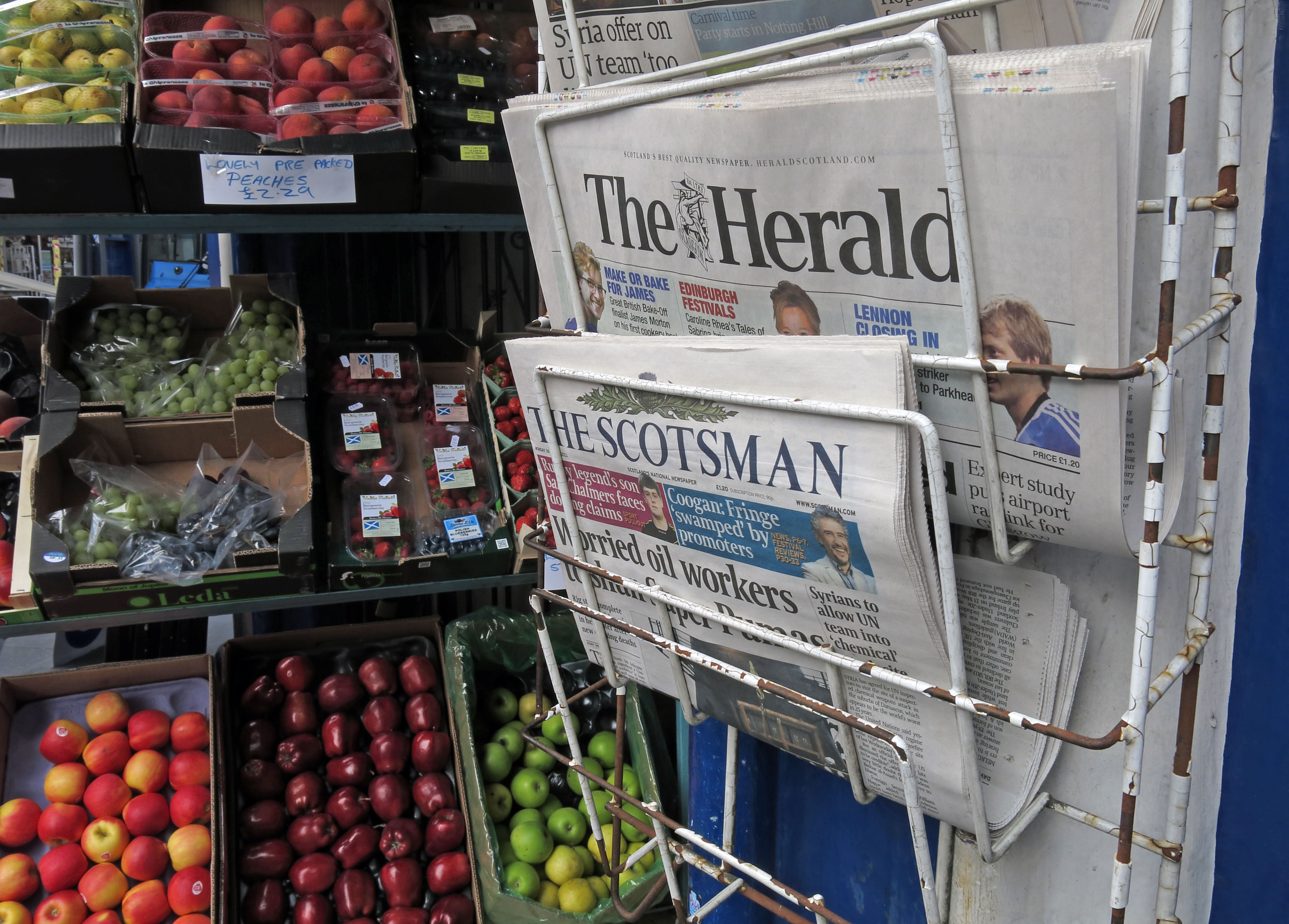Out for clicks: Why the gap between Scottish political blogs and the mainstream media is ‘narrowing’
They are the politically-charged alternative to the mainstream, firing debate from blogs, podcasts and newsletters.
Kept going variously by crowdfunders, donations and merchandise sales, platforms like Wings Over Scotland, The Majority and Bella Caledonia have become fixtures in our media landscape.
And while all are critical, to varying degrees, of the “mainstream media” (MSM), experts say the gap between new and traditional media is getting smaller and old certainties about who controls the narrative are increasingly under question.
“The space between the most popular of the online sites and what we used to call the mainstream sites, that space is narrowing,” according to Professor Neil Blain, former head of the communications, media and culture department at the University of Stirling.
“What we now have is a hybrid media system,” says media and communications expert Professor Sarah Pedersen, of Robert Gordon University in Aberdeen. “We are picking up stories as we scroll through Twitter. We are curating our own newsfeeds, and of course that does lead to problems with bubbles.”
Citizen journalism in Scotland was established long before the run-up to the 2014 vote, but interest in the Yes-No ballot saw public debate on the country’s future flourish on both sides of the constitutional divide. Online forums and social media channels were home to some of it, while blogs focused on current affairs benefited from interest in questions over currency, borders, pensions and defence.
Almost a decade on, alternative (alt) media channels now generate headlines for mainstream plaftforms. It was in the blogosphere that allegations first emerged about the SNP’s finances, long before Police Scotland first announced Operation Branchform, and it was online, too, that whispers began that former first minister Alex Salmond was set to launch a new party, Alba, to rival the SNP.
Wings Over Scotland, perhaps the best-known of Scotland’s pro-independence blogs, was ahead of the press pack on both of those stories. Controversies generated by its founder Rev Stuart Campbell, including a defamation suit against ex-Scottish Labour leader Kezia Dugdale which ended in a loss for the man known to readers as “Rev Stu”, mean many of the stories have been about Wings itself.
Meanwhile, billboard campaigns attacking Nicola Sturgeon earned pro-Union outfit The Majority its own headlines. And elsewhere, players like Bella Caledonia founder Mike Small and Paul Kavanagh, who writes The Wee Ginger Dug blog, have established themselves as newspaper columnists, straddling both MSM and alt media.

Stuart Campbell whose Wings Over Scotland blog beat the press to some big stories
Shifts in audience behaviour, Blain says, mean there's been a blurring of the edges over who has control of the narrative, and whether the entrenched ideas about "mainstream" and "alternative" media even still apply, something he says which is not unique to Scotland. "There's a global context where people are connecting with the mainstream media internationally less and less," Blain said. "We have been quite atomised. We have a very segmented audience."
That atomisation is taking place in a world that’s increasingly online, and where credibility is under question. Despite the proliferation of fake news on Twitter, Facebook and beyond, and the efforts of legacy brands to address this through their own output, trust in those publishers has tanked.
Fewer than half of people in the UK now think the BBC – which is subject to impartiality guidelines – is “trustworthy” or “very trustworthy”, according to recent research by YouGov, while just 30 per cent would say the same about The Times.
In separate work, the Reuters Institute and the University of Oxford found that overall trust in the media has fallen internationally, as has engagement with news media, full stop, and around one third of news consumers (36 per cent) say they avoid the headlines “often or sometimes”. Criticism of news media is often “coloured by political agendas” and “forthright” expressions of this by activists or special interest groups have contributed to the erosion of trust, it found.
Pedersen, who sees a “vibrancy” across Scottish media, argues that these same factors have helped Scotland’s alternative politics sites to flourish, driven by audience demand.
“A lot of citizen journalism was based on the idea that the mainstream media would not cover the independence side of the political debate, or would not cover it properly. It prided itself on being opinionated and as for the claims of the mainstream media to be objective, it said that wasn't possible and it claimed that subjectivity. There's less impetus on the pro-Union side to provide that kind of coverage because it's perceived that the mainstream media does that,” she says.
“That opinionated-ness and that idea that you are covering subjects that the mainstream media won't cover, that still stands and it applies to other subject outside of the Scottish constitution, like the conversation around gender or being gender-critical,” she says.
“It may not be about the same subjects as it was 10 years ago but it is still driven by that opinionated feeling – there's someone who understands you, who you agree with, who might be a great writer.”
That same opinionated nature contributes to the “love them or loathe them” nature of some alt media sites, she said.
“It tends to go to the edges of opinion,” according to veteran broadcaster and journalist Stuart Cosgrove, whose Talk Media podcast turns a critical eye on publishing across platforms, “and it’s not necessarily bound by the conventions of newspaper journalism.”
Issues like the deposit return scheme (DRS), the environment and gender are “ideal” for bloggers, he says, because they are, in media parlance ‘talkers’ that split opinion, generate debate and get people’s backs up – emotionally-charged content, he explains, is often key to attracting large audiences and building a following.

Titles such as The Scotsman and The Herald have less prominence than they did in the past
That’s not to say, he argues, that these followings are of a size to rival the bigger end of the MSM – a term he says has become “clunky” and is “always used as an insult”. While audience figures for many newspapers are published by the Audit Bureau for Circulation, and Ofcom takes care of those for broadcasters, there is no comparable register for blogs, newsletters and podcasts and so it’s “almost impossible” to state audience share with any certainty, Cosgrove says. Most serve a niche, he says, but these are “sizeable niches”.
“There's lots of hunger out there for good quality Scottish communication, particularly among people who lean towards the left, towards the environment debate, towards independence,” he adds. “They feel slightly starved.”
Many traditional media outlets still offer “a view of the world from London”, he argues, and increasingly promote “lighter” content, rather than current affairs. “You saw this first in TV and now a lot in newspapers with lifestyle stories rather than particularly political stories, everything from travel to where to go on rainy day.” Outlets prioritising that material for online audiences, Cosgrove argues, “have the collective power to narrow the coverage of political journalism and building up the tribalism around the blog”.
“It's not everyone who's reading newspapers or blogs,” cautions Pedersen. “We tend to think it's the world on there but it's really not, it's a small microcosm all feeding off each other. The average person on the street is not necessarily au fait with any of these stories. We are talking about politicians, policy makers, the people interested in politics. It's the people who will go and vote.”
At Bella Caledonia, founder Mike Small says he has a monthly audience of around 200,000 across platforms. He aims to “change the media by creating a fifth estate – an idea of participatory journalism” through “a daily dose of political analysis, cultural commentary and long-form essays and writing”. His audience, he tells Holyrood, is made up of “folk from across Scotland and beyond, largely people highly critical of the state we're in and wanting radical change”.
Does he see himself as being in competition with the mainstream media? “In a way we are, being often critical of some of those platforms and titles, but there is also a going between of traditional journalists and 'the new media'.”
That “going between” has clear effects, according to Pedersen.
“Citizen journalism has impacted on mainstream media because if you are talking about the BBC or whatever, it's 'send us in your story, send us in your video', trying to take in citizen journalism and expand itself to have this user-generated media. Every newspaper now has comments under the line and journalists are sometimes encouraged to get involved. You've got that kind of mind shift that it's a two-way process now. We have got this incredible broad line between who is the news maker and who is the news recipient.”
While Blain sees value in political blogs, he argues that they are “no substitute for policy-driven support from the Scottish Parliament for a properly functioning mainstream press and broadcasting media”.
“There is evidence of a gap being filled by them,” he says, but as legacy media continues to contract, with jobs lost this year at news publishers like Dundee Courier owner DC Thomson and News UK, which owns The Times, it cannot be filled entirely.
“They have significance in discussions about Scottish democracy,” Blain says of politics blogs, “but they can’t compensate for the loss of resource in mainstream journalism and the Scottish voice is, I think, considerably weaker than it was within Britain nationally than it was in the past. The Scotsman and The Herald were very important platforms for a distinctive Scottish voice within a UK political polity, but they don’t have the prominence they had before.
“They have gone from being mainstream publications in Scottish to life to being, for many people, marginal. There is a paradox at play; it's very odd that as Scottish identity comes more to the fore, we don't have a media to match that. You would think there would have been a burgeoning of a Scottish media further with the rebirth of a Scottish identity. That's what's happening online, but it's not resourced.”
Holyrood Newsletters
Holyrood provides comprehensive coverage of Scottish politics, offering award-winning reporting and analysis: Subscribe